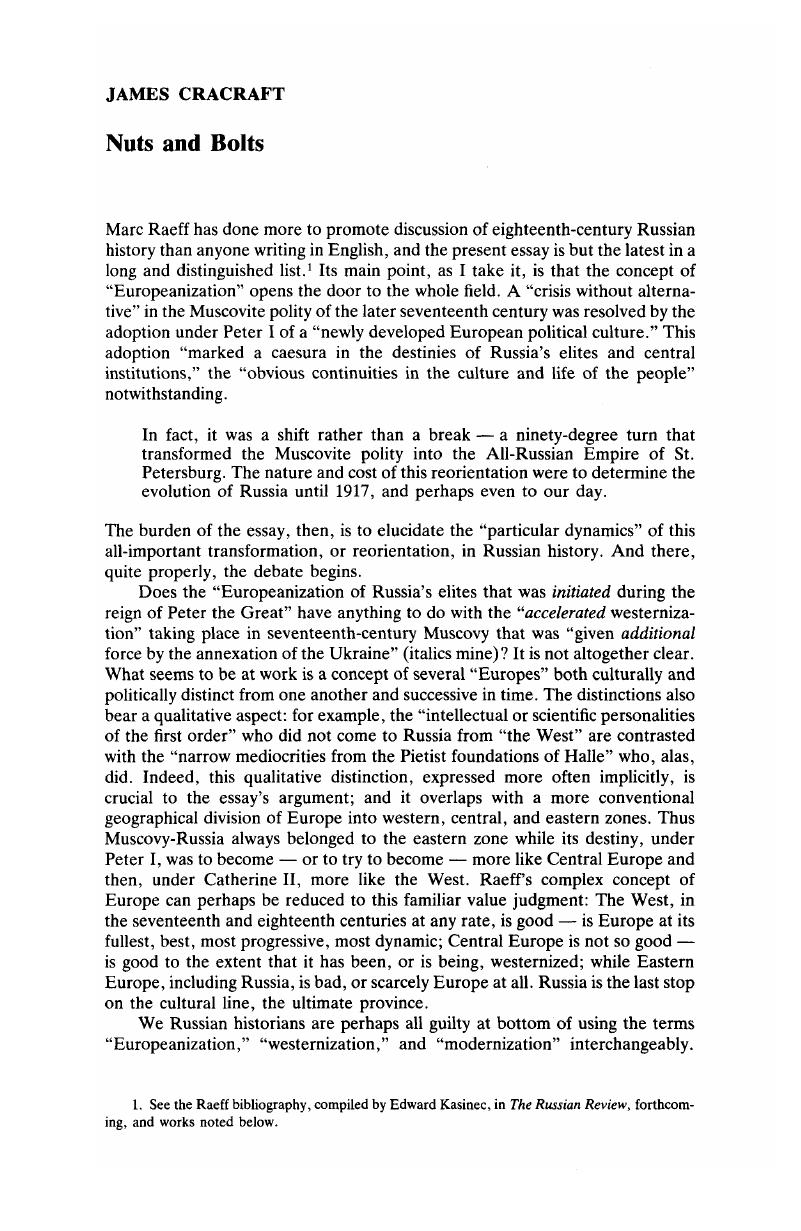No CrossRef data available.
Article contents
Abstract

- Type
- Discussion
- Information
- Copyright
- Copyright © Association for Slavic, East European, and Eurasian Studies. 1982
References
1. See the Raeff bibliography, compiled by Edward Kasinec, in The Russian Review, forthcoming, and works noted below.
2. Marc Raeff, “The Enlightenment in Russia and Russian Thought in the Enlightenment,” in Garrard, J. G., ed., The Eighteenth Century in Russia (Oxford, 1973), pp. 25-47, especially p. 25, n. 1, and p. 26Google Scholar. The present essay is perhaps best read in conjunction with this earlier work.
3. Marc, Raeff, Origins of the Russian Intelligentsia: The Eighteenth-Century Nobility (New York, 1966), pp. 148 ffGoogle Scholar.
4. Raeff, Cf. Marc, Imperial Russia 1682-1825: The Coming of Age of Modern Russia (New York, 1971), pp. 139–58 Google Scholar.
5. Cf. remarks by David Christian in the Spring 1982 Slavic Review, p. 73, for a happy instance: “I know of no attempts to explain the role played in Russian institutional history by supervisory institutions as a whole. The reason for this oversight is clear. Supervisory institutions were never as significant in Western Europe as in Russia and thus were not incorporated into European political theory. Russian and non-Russian historians have approached Russian institutional history with the categories of European political theory which ignore the very existence of supervisory institutions. In consequence, it has been difficult to identify supervisory institutions as a general category or to explain their significance in Russian institutional history.“
6. The subject of my forthcoming book: The Birth of Architecture in Russia: Europeanization and Revolution, 1650-1800 (Yale University Press). 1. I hope that my forthcoming monograph on the subject will convince de Madariaga of the usefulness of the notion.




